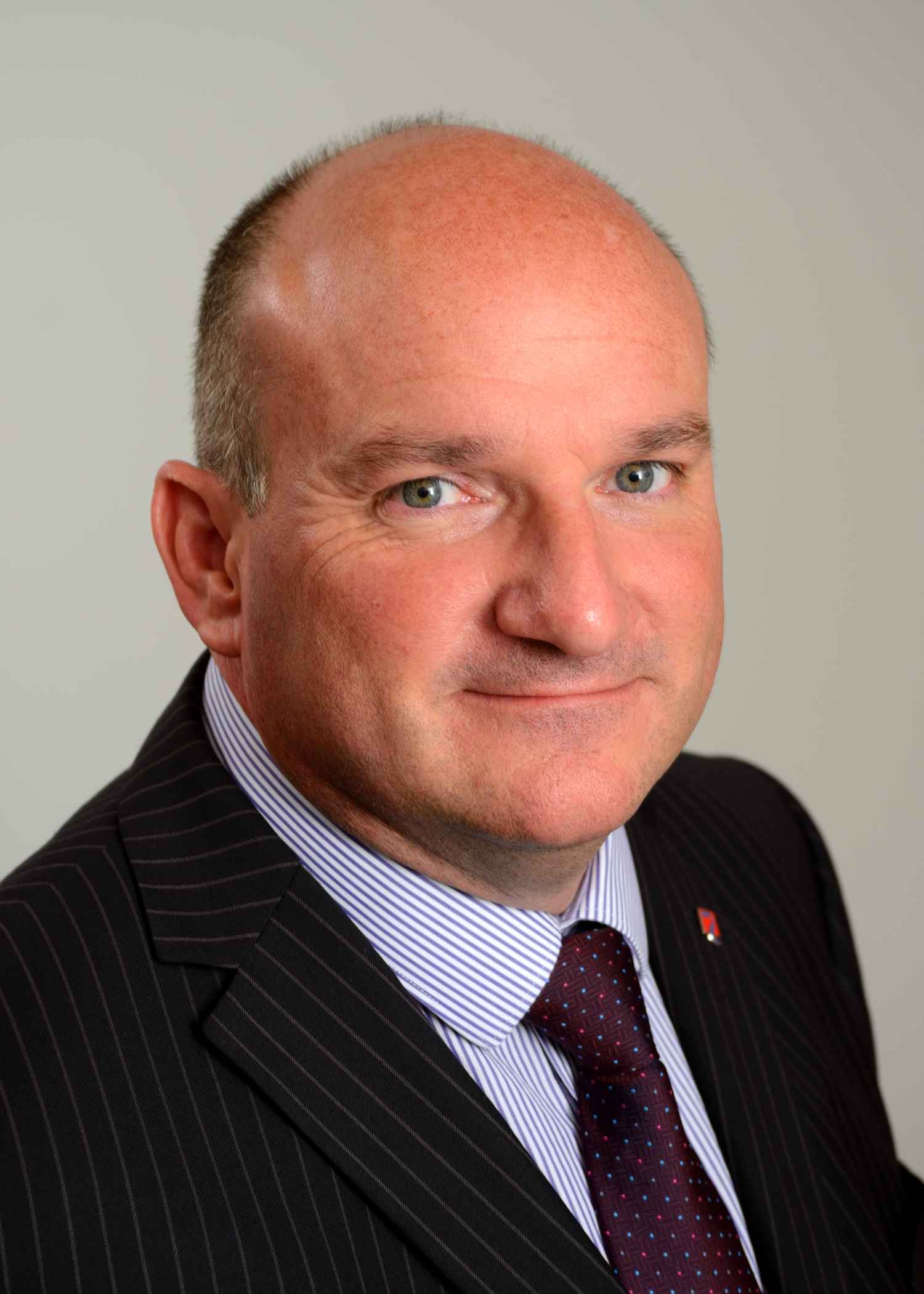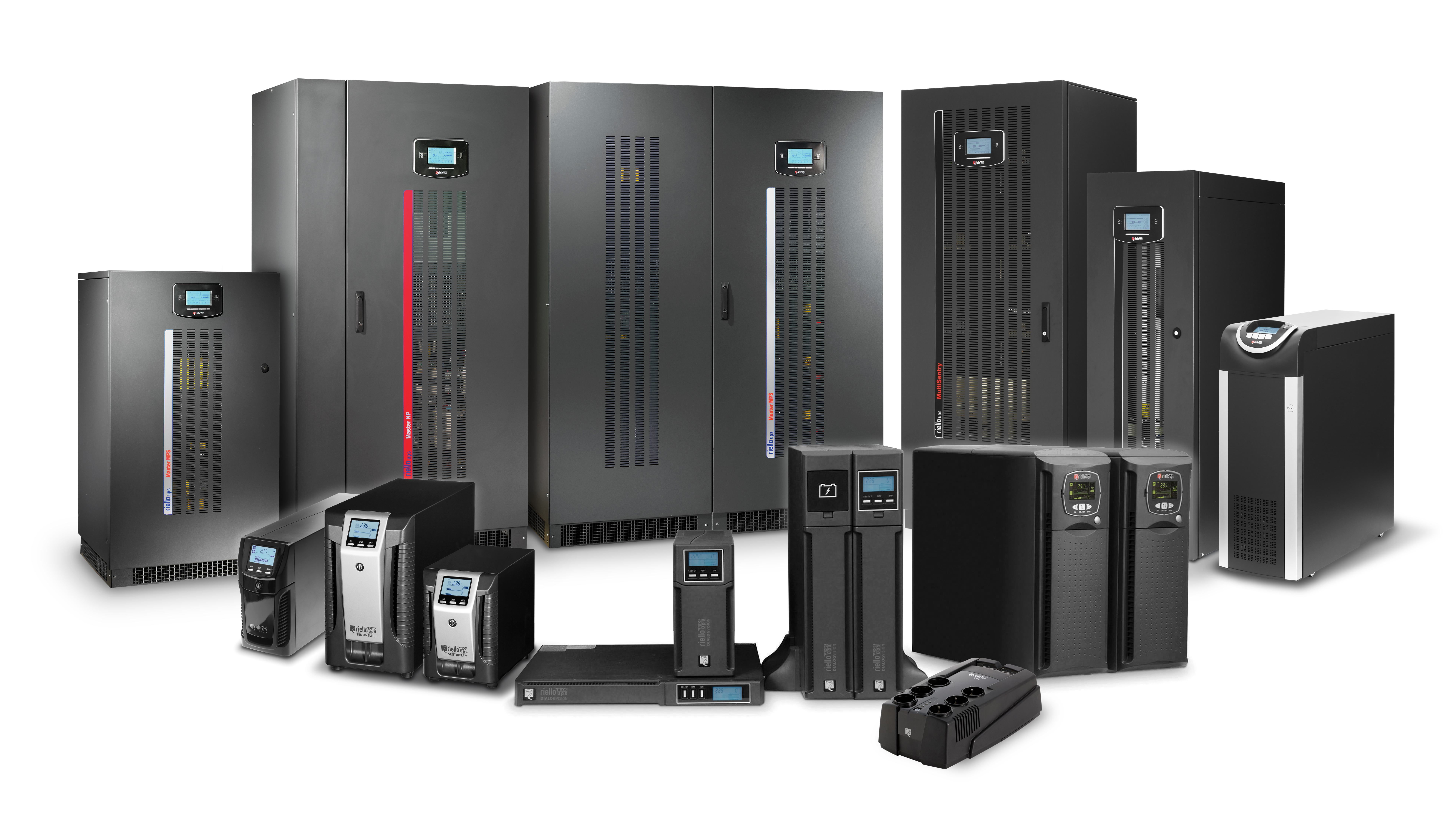Riello UPS: Reliable power for a sustainable world – Leo Craig
Banking services rely on efficiently run data centres and, by extension, an efficient back-up power system in cases of emergency. Future Banking talks to Leo Craig, managing director of Riello UPS, about how his company is guaranteeing this by manufacturing the next generation of uninterruptible power systems.
Data - big, smart, nestled in 'the cloud' - is the spearhead of a bank's forward momentum, the primary determinant behind the size of its customer base and the complexity of the services it can offer them. All that, however, remains impossible without a guaranteed supply of electricity to cool and power the requisite servers.
"Making sure that their data is secure from all aspects, especially from power outages, is obviously a great concern for banking institutions," says Leo Craig, general manager for Riello UPS. "Our company specialises in the protection of the power. That's where our strength lies."
Riello UPS - the acronym stands for 'uninterruptible power supply', the specialised battery system that instantaneously steps in to replace mains power in case it fails - is a relative newcomer to the financial services industry. That is, if you define 'new' as referring to supplying products branded solely with the Riello name. "Prior to 2000, we manufactured badged-out UPSs," says Craig. "Riello is actually the third-largest UPS manufacturer in Europe and the fourth-largest manufacturer in the world. But not a lot of people know that."
That is set to change. From its two manufacturing hubs in Italy, Riello has expanded into supplying sophisticated UPS systems to companies in the Far East, with subsidiaries in Australia, China and the US. Now, having built UPSs for many other industries, it is breaking into the UK financial services market. "We manufacture units of all sizes, from 400VA up to 6.4MVA," Craig explains. "Riello builds them using transformer-based and transformless technology, in addition to modular designs."
Energy bars
Fundamentally, Craig believes, Riello sees its job as guaranteeing the accessibility of banks to their data. "If you're a financial institution or any other blue-chip organisation that relies heavily upon data, your priorities have to lie in protecting it," says Craig. "With a great deal of banking now being facilitated through apps, mobile phones and online, financial institutions need to guarantee a high up-time for their servers."
This requires a resilient UPS, which also implies a depressingly high energy bill. However, this needn't always be the case. "It comes down to efficiency," says Craig. "The European Union's energy-saving target for the financial sector - the 'Energy 2020' commitment - compels us to look for 20% reductions in carbon output and a commensurate increase in energy efficiency. That's what we try to do as a UPS manufacturer."
Obtaining that degree of efficiency requires a smart approach to energy management. "The problem in getting maximum efficiency out of any UPS is that you've got to drive that piece of equipment to 80-90% loading," Craig explains. "As soon as you put redundancy in, the load is shared across two units. One of those will then drop to 40%, which therefore means you're running your system inefficiently."
Riello sidesteps this problem by ensuring its UPS systems run as efficiently at 40% power as they do at peak usage. "This means any data centre can run the equipment efficiently in a parallel redundancy scenario," says Craig. "What we've also done is introduce a very high efficient modular UPS, making the redundant component very, very small. Instead of having two 500KVAs and having one of them sitting idle, we can built it up in modules of 42kWs instead. That way, the redundant component would only be one of these modules, increasing overall energy efficiency dramatically."
The problems of cooling are also taken into account by designing the UPSs so that they'll work in much warmer environments. "Our systems will work in temperatures of 40°C without any problems," Craig says. "The biggest problem of course comes with batteries, which need to be kept at 20°C. One thing we have started to do is introduce new lithium ion variants. Apart from the fact that they can take up half of the room normally occupied by a sealed lead acid battery, they can operate in temperatures reaching up to 40°C."
Human error
Banking institutions also have to look to other factors in reducing their overall costs of ownership. "Regardless of the manufacturer, any UPS system will require maintenance during the course of its lifetime," says Craig. "One critical thing to highlight for any customers within the sector is that a lot of UPS manufacturers actually lock their equipment up. They adopt something called a 'closed protocol', meaning that only they can maintain that equipment. Once it's been bought, they enjoy a captive audience, in that the bank can no longer put out an open tender for service.
"At Riello, we follow the guidelines set down by the EU. All our equipment is open protocol. Any trained and competent UPS engineer or service company can inspect and maintain it. Of course, we've always recommended that they be a certified partner of Riello. That way, they've got access to spares and had the relevant training on the equipment."
This touches on a major problem Craig has repeatedly witnessed when it comes to UPS and data centre maintenance: a fundamental lack of knowledge on the part of outsourced engineers. "Really, it's the biggest problem within any data centre environment," he says. "However, these are electronic devices: they can and will fail at some point in their life. So long as that is planned for within the electrical infrastructure, in terms of correct redundancy and installation, it shouldn't affect the operation of any other units. There should be absolutely no reason, in theory, to have any downtime within a UPS system."
According to Craig, most problems actually derive from the poor construction or installation of the electrical infrastructure that necessarily feeds off of the UPS. "Ultimately, I think it's important that financial institutions do their due diligence and not simply trust a consultant when they say 'Yes, the installation is complete'," he says.
Future systems
As far as the long-term viability of data centres goes, Craig foresees greater reliance on the cloud by financial institutions, large and small. "Lots of companies are migrating to the cloud and in so doing they share the same worries," he says. "They're worried about basic data protection, but also whether due diligence can be done on the third-party suppliers of the cloud facilities. You can have a data centre with all the servers that can supply the amount of data needed, but have they got the right UPSs there?"
In that respect, due diligence on the installation and maintenance of the UPS is essential. "Over the years, I've been to lots of data centres that shoulder cloud applications," recalls Craig. "Especially in the early years, they made claims that they've got this or that in place purely off what was written down in the marketing literature. And then I see what they've done, on a shoestring budget, in terms of the UPS and the electrical infrastructure.
"You certainly get what you pay for with cloud services. It's almost like choosing the care home for your elderly parents. You wouldn't just pick the first one that you'd see on the web based off the advertisement. You'd actually make sure it's the right place to choose by visiting it, talking to the staff and looking at the facilities. In a similar way, you're putting your data into someone else's hands. And if you do that, you should expect the best."
Riello is looking to deliver that standard to customers in the financial services sector across the world. Although for much of its history the company has largely confined its operations to the European market, now it sees opportunities for aggressive expansion in the Far East and North America. While the locations might differ, however, the core service that distinguish Riello from its competitors in the UPS sector will remain constant.
"It gets back to the core of what we offer to our customers," says Craig. "That's reliability, efficiency and reduced cost of ownership."


